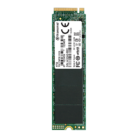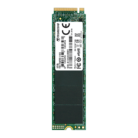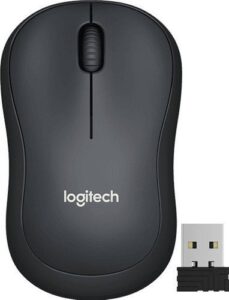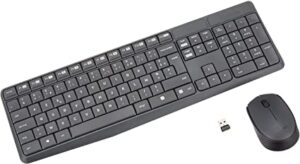Product on sale
TRANSCEND 256GB 110S INTERNAL SSD, M.2 PCIe Gen 3*4 NVMe 2280
Key Features
- Adopts PCIe Gen3 x4 interface and NVMe 1.3 standard
- Up to 1, 800 MB/s Read; 1, 500 MB/s write
- 3D NAND Flash memory
- Engineered with a RAID engine and LDPC (Low-Density Parity check) coding to
- ensure data integrity;
- built-in SLC caching technology for exceptional transfer speeds
- Engineered dynamic thermal throttling mechanism
- Confirm compatibility before purchase
- Delivery : Same-Day Within Nairobi. 1-Day Outside Nairobi
- Warranty : 1 Year
TRANSCEND 256GB 110S INTERNAL SSD, M.2 PCIe Gen 3*4 NVMe 2280
Transcend’s PCIe SSD 110S/112S utilizes the PCI Express? Gen3 x4 interface supported by the latest NVMe? standard, to unleash next-generation performance. The PCIe SSD 110S/112S aims at high-end applications, such as digital audio/video production, gaming, and enterprise use, which require constant processing heavy workloads with no system lags or slowdowns of any kind. Powered by 3D NAND flash memory, the PCIe SSD 110S/112S gives you not only fast transfer speeds but unmatched reliability.
- Model Name: Transcend 110S
- Capacity: 256GB
- Form Factor: M.2 2280
- Interface: PCIe Gen 3×4 NVMe 1.3
- Protocol: NVMe 1.3
- NAND Flash Type: 3D NAND flash
- Sequential Read Speed: Up to 1,800 MB/s
- Sequential Write Speed: Up to 1,500 MB/s
- Random 4K Read IOPS: Up to 110,000 IOPS
- Random 4K Write IOPS: Up to 130,000 IOPS
- Dimensions:
- Length: 80 mm
- Width: 22 mm
- Height: 3.58 mm
- Weight: 8 g
- Operating Temperature: 0°C to 70°C
- Shock Resistance: 1,500G / 0.5ms
- MTBF (Mean Time Between Failures): 2 million hours
- TBW (Total Bytes Written): 70 TB
- DRAM Cache: Yes
- Power Consumption:
- Active: 3.1W
- Idle: 0.3W
- Features:
- S.M.A.R.T. (Self-Monitoring, Analysis, and Reporting Technology)
- LDPC (Low-Density Parity-Check) error-correcting code
- Advanced wear-leveling and garbage collection

















Reviews
There are no reviews yet.